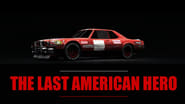Hellen
I like the storyline of this show,it attract me so much
Exoticalot
People are voting emotionally.
WillSushyMedia
This movie was so-so. It had it's moments, but wasn't the greatest.
ThedevilChoose
When a movie has you begging for it to end not even half way through it's pure crap. We've all seen this movie and this characters millions of times, nothing new in it. Don't waste your time.
edwagreen
We all know what a hero is. What makes the Jeff Bridges character a hero here?Forced to go into car racing to help his jailed father, Bridges emerges as a race car winner. This tale could have been told in about half the time. The racing scenes are what you would expect in a typical Paul Newman film on this subject.What was Geraldine Fitzgerald thinking of when she made this film? Her British accent comes through her southern drawl and besides, she is given so little to do here. Ditto here for Gary Busey. He smiles here and that's about it for him.The one poignant scene where the father tells the sons that he wants something better for them other than prison is wasted. We never really know why the father was jailed for selling the whiskey. Was it moonshine?
Woodyanders
Jeff Bridges gives a typically splendid, boyishly affable and charming performance as Elroy "Bobcat" Jackson, Jr., a cocky, rebellious, recalcitrant, trouble-making hot dog hillbilly moonshine runner who becomes a professional stock car racer and demolition derby driver in order to raise enough cash to get his dear ol' crusty, mule-headed pappy (a marvelously gruff Art Lund) out of jail. Assisted by his loyal, but hot-tempered brother Wayne (the always fine Gary Busey) and against the wishes of his staunch, worrisome mother (a wonderfully indomitable Geraldine Page), Elroy aspires to achieve champion driver status in the ferociously competitive world of professional stock car racing, thus having both his stubborn pride and homespun integrity put to the ultimate test in the process.Inspired by a Tom Wolfe "Esquire" article on flamboyant real life racing legend Junior Johnson (who worked as a consultant and technical adviser on the film), this spunky little number offers both a glorious celebration and a compelling exploration of rugged individualism and that great quintessentially all-American desire to be somebody in life. Lamont Johnson's sharply perceptive direction, ably complimented by George Silano's lively, breathtaking cinematography and Charles Fox's twangy country score (Jim Croce's blustery "I Got A Name" makes for a fantastic life-affirming theme song), astutely pegs the rowdy, boisterous, danger-ridden, and testosterone-soaked macho atmosphere of the racetrack milieu (the race scenes are suitably wild and thrilling) and delivers a rich, flavorsome evocation of humble, dirt poor, strongly family-oriented Southern backwoods America. William Roberts' acidulous script affects a cynically barbed and askew point of view in its penetrating portrait of America's love for do your own thing outlaw nonconformists and how winning inevitably comes with substantial unavoidable attachments. The stand-out supporting cast includes Valerie Perrine as a sweetheart racetrack groupie, William Smith as a formidable rival driver, Ed Lauter as a sleazy corporate sponsor, Ned Beatty as an oily demolition derby manager, and Lane Smith as an antsy, burnt-out driver. A terrifically tart'n'smart slice of pure Americana story of the guts and stamina it takes to actively pursue making your dreams come true.
toquestyle
Jeff Bridges did a great job as Jr. Jackson(Johnson). It was after reading an old interview with Jr. Johnson and him referencing the movie that I sought it out to see. And I was not disappointed. Gary Busey also did a great job. From the moonshine runs, to the demolition derbies there was a lot of truth. To those who've never experienced the deep south and some of it's uniqueness, especially for the era, this was dead on. Here it is more than 30 years later and Nascar hasn't changed all that much. The grooming of drivers has, so movies like "The Last American Hero", help with the preservation of a simpler time and people. Yet the altruism in the seeking to gain another dollar still reigns today, some thirty years later. There aren't many movies you can say that about.
Geofbob
Jeff Bridges' combination of redneck roughness and choirboy sweetness is just right for this 1973 tale of a poor Southern boy, Junior Jackson, making good on the car racing track. The movie is based on Tom Wolfe's articles about the famous stock car racer, Junior Johnson, whom Wolfe dubbed "The Last American Hero". Cinematic Junior, like the real one, learns how to drive hard and fast while running the moonshine whiskey made by his father. The movie covers the first year or so of his career, from when he takes up racing to raise money while his father is in jail, until his first big win.
The movie celebrates individuality and competitiveness, but despite all his skill, guts and cheek, even Junior can't make it by himself. Real success comes only after he gives up his independent status, and agrees to drive for a car-maker (Ed Lauter). Also in support are his family, with Art Lund and Gary Busey excellent as his father and brother; and a stock car groupie (Valerie Perrine) who retains a soft spot for him, whoever else she's currently sleeping with. However, for many viewers, the main interest of the film will lie less in its plot, characterisations, or "right stuff" message, than in the atmosphere and thrills of the races which the movie graphically captures.



